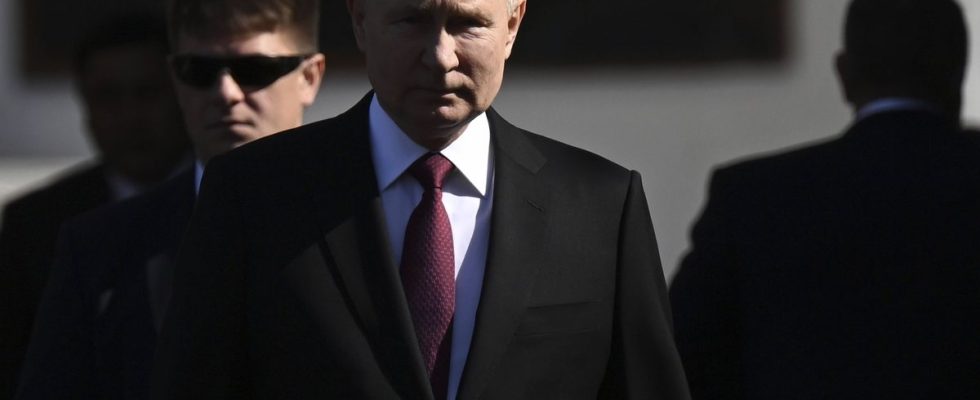Did you miss the latest events on the war in Ukraine? 20 minutes takes stock for you every evening at 7:30 p.m. Between the strong declarations, the advances on the front and the dramatic results of the fighting, here is the gist of the day.
The fact of the day
Russia has revoked its ratification of the Comprehensive Nuclear Test Ban Treaty (CTBT), opened for signature in 1996, and ratified by Moscow in 2000. Vladimir Putin finally signed a law this Thursday revoking Russian ratification. At the beginning of October, the head of the Kremlin had already raised the possibility of such a revocation, in response to the United States which never ratified the treaty. “I am not ready to say whether or not we should resume testing,” he added, while praising the development of new high-powered missiles that can carry nuclear warheads.
France “deplored” the decision, its foreign ministry said. “Since the opening for signature of this Treaty, the ban on nuclear tests has established itself as a common norm, which only North Korea has violated in the 21st century,” commented the ministry. “Russia’s decision compromises the work of universalizing the treaty,” he added, calling on it “to respect the moratorium on
The number of the day
1. North Korea provided Russia with more than a million artillery shells for its military operations in Ukraine and, in exchange, Pyongyang received technical advice for its satellites, a South Korean lawmaker said Wednesday. citing Seoul’s intelligence services. Pyongyang and Moscow, two historic allies, are subject to a series of international sanctions, Russia because of its offensive in Ukraine and North Korea for its nuclear weapons tests.
Sentence of the day
No, the conflict is not at an impasse. »
These are the words of Kremlin spokesman Dmitry Peskov. “Russia continues its special military operation relentlessly. All set goals must be achieved,” Peskov added, responding to comments by Commander-in-Chief of the Ukrainian Army Valery Zaluzhny in an interview with The Economist. “Just like in the First World War, we have reached a technological level where we find ourselves at an impasse. There will probably be no magnificent and profound breakthrough,” he told the British weekly the day before.
Today’s trend
Will the United States limit itself to financial support for Israel? Or will they adopt the enormous envelope wanted by President Biden with funds for Gaza, Ukraine and partners in Asia? The American Congress is starting to work on this thorny issue.
The institution is split in two on the type of support to provide to its allies abroad. Democrats and Republicans alike want to immediately adopt military aid for Israel, a long-time partner of the United States, at war with Hamas. However, things get complicated when it comes to Ukraine. Joe Biden’s promise to continue to financially support Ukraine, reiterated during President Volodymyr Zelensky’s visit to Washington in September, is thus in jeopardy. The standoff around these envelopes – which says a lot about American questions about its role as world policeman – promises to be tough.

